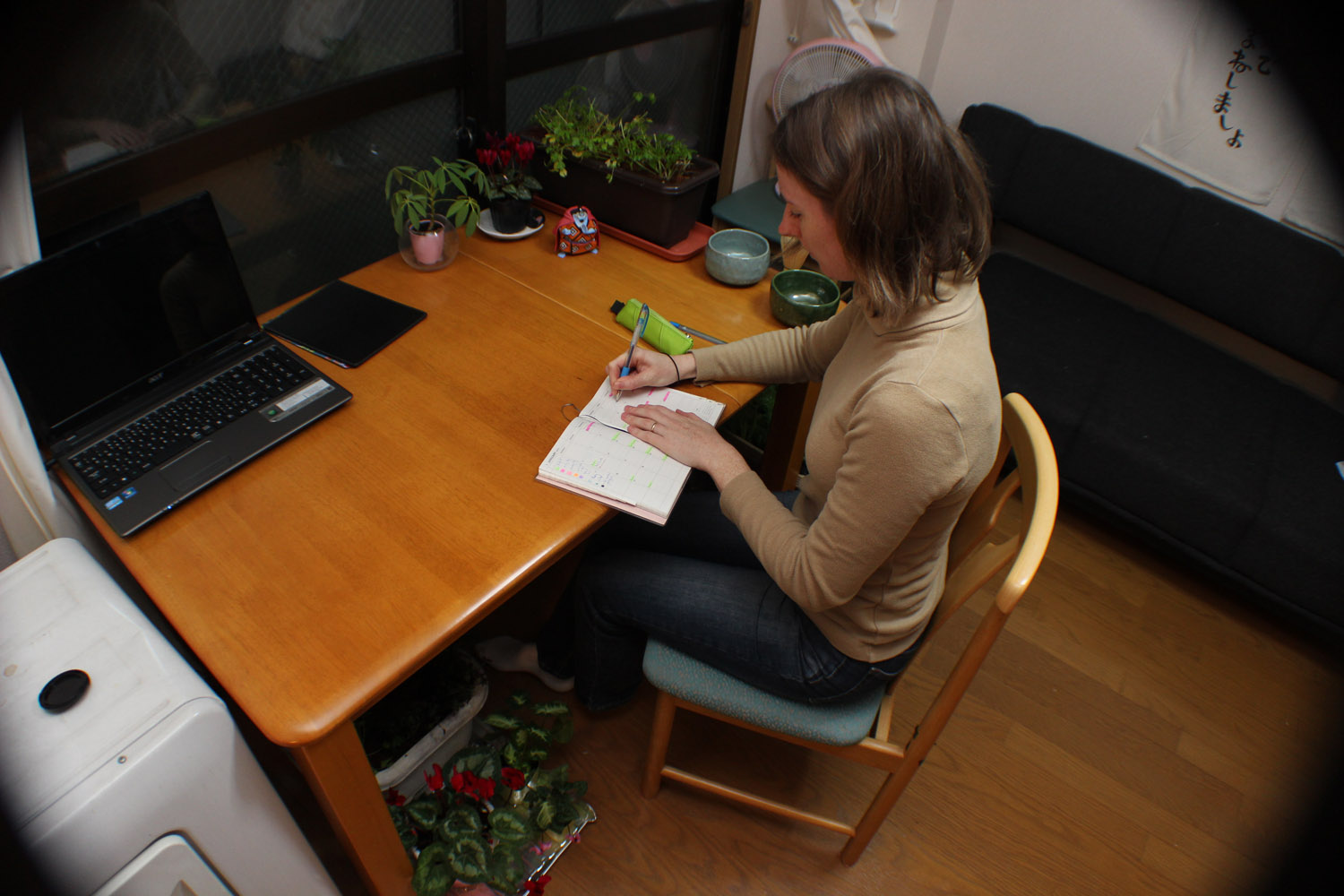By Gem
Part One is available here.
Okay, ready for step two?
Stop Feeling Like A Jerk
In Part One, we discussed how a bit of self-criticism can improve your relationship with others. Now we’re going to look at how self-criticism can improve your relationship with yourself. Today’s the day I want you to take a long, hard, critical look at yourself… and love what you see.
I’m Sorry
Oh god, I think I threw up in my mouth a little. One second….
I’m a bit jaded on the topics of self love and self acceptance just now, because of the nasty, self-adoring fetishism that’s currently passing for both online. There seems to be a real push at the moment to avoid the unpleasant, indulge all desires and cling to every flaw as a virtue; after all, it’s a facet of our totally wonderful selves!
I could not possibly agree less with this nauseating dreck, but will still happily admit that accepting and loving yourself is 100% essential for anyone with the urge to be awesome. You just have to love yourself right.
The Bad Boss
Have you ever had a really, really horrible boss?
The kind who hang over your shoulder every minute, eager for you to make a mistake? Then, when you do slip up, insult you instead of helping you and make you so nervous and unhappy that you dread going to work? How much did you get done working under a boss like that?
Conversely, how much more have you achieved with a good boss and a more supportive atmosphere?
The good boss is aware that you have weaknesses (like shyness and inexperience) and uses that knowledge to help you overcome your troubles. They applaud your successes and help you not to fail. In such a supportive environment, it’s easy to achieve and it’s easy to recover from mistakes.
The bad boss is also aware that you have weaknesses and loves to draw attention to them. In fact, if you don’t have enough weaknesses for their satisfaction, they’ll help you to create some (like anxiety and defensiveness). The bad boss ignores your successes, but is thrilled when you fail, rendering that failure more and more likely with every day. In such an antagonistic environment, achievement is almost impossible and recovering from mistakes becomes very, very difficult.
Don’t be the bad boss. Not even to yourself.
Being The Bad Boss
Being the bad boss is miserable. It’s setting yourself up for self-hatred based in lies. Unhappiness lies to you about what you can do and how you’re perceived by others. Loneliness lies. Fatigue, hunger and boredom lie. And depression lies worst of all.
Being the bad boss is also impractical. People who don’t love themselves don’t get anything done! If you’re constantly focused on what’s wrong (I’m a lazy, awkward frump with no skills, bad breath and a terrible haircut”) then it isn’t really any surprise that you don’t care to do much for such a loser. What would be the point?
This is where the infuriating, self-worshipping gunk plastered all over the internet at the moment is right; you do need to love yourself. And this does include the parts of you that need improving. Where it is wrong, wrong, WRONG, is in suggesting that this is where the journey ends. Loving yourself isn’t important because of internet warm fuzzies. It’s important because of what it makes you DO. You can trumpet to the skies how much you love your scatty brain/ messy house/ alcoholic tendencies, but deep down you know better. Which means that, deep down, you’re still unhappy.
This is why your truthful self-analysis is vital. If you’re being the bad boss, dishonestly focusing your reflection time ONLY on negatives, then you’ll hate yourself and do nothing. But if the way you choose to love yourself also causes you to do nothing, that’s almost as harmful!
Being the Good Boss
In the past, I’ve told you not to go around assuming you deserve things. Today, I’m telling you not to assume that you don’t!
Confused? Stick with me, this actually does make sense.
The trouble isn’t really your conviction that you deserve something. It’s what that conviction causes you to do. If people think too much about their rights to things, they lose their impetus for action. They deserve whatever it is, damn it, so other people had better bloody make it happen.
But thinking that they don’t deserve things also destroys a person’s ability to act if they’re hanging over their own shoulder being the bad boss. Kick that bad boss away! This is the time where you do get to think about what you deserve. But I’m not talking about eating pizza or quitting your lousy job. I’m talking about real things, the things that get left out of the Tumblr circle-jerk.
Self-love does not mean indulging your own every whim. Self-love is recognising your desires (for example, good health, enjoyable work and a happy home) and then loving yourself enough to do what is necessary to achieve those desires!
Think of the respect the good boss gives you. They’re encouraging and supportive. They want you to be happy. But they don’t give you a book, a beanbag and a bar of chocolate and tell you to have a nice time. They expect you to work. And you should expect that too!
People work hard to do things like build a house, raise a child, create a business or maintain a marriage. And all of these things have made people very happy. But they also involve a lot of unpleasantness and difficulty. If you’ve thought hard about yourself and your desires, it becomes a lot easier to grit your teeth and get through the hard parts, because you understand the rewards will be worth it.
Expecting the Unrealistic
I know it isn’t necessarily that easy to just look at every part of yourself and love it. Most people avoid thinking about their flaws and hence, when they are forced to face them, they seem far more heinous than they would in another person. Relax. Deep down, most of us are pretty dreadful. But luckily, we’re all pretty awesome as well. You fit right in.
Your problem probably boils down to just one thing: Unrealistic expectations. There are two forms of these and both of them are bloody dangerous. There’s Form A, otherwise known as:
I Hate Myself
Look at all of the awesome things everyone else is experiencing while I’m not doing anything. Everyone I know has a better job/ prettier children/ nicer holidays. I suck.
Form A is what happens when you have unrealistic expectations of yourself. If you don’t understand yourself well enough to know what it is you want from your life, it’s impossible to determine whether or not you’ve achieved it. In that state, it’s easiest to look at what other people are doing as guidance for what you should be doing as well.
Trouble is, all of those people are doing different things! Some of them are travelling the world, some of them are having babies, some of them are volunteering in distant places, some of them are staying home and achieving amazing things in their fields. You can’t possibly keep up with the achievements of absolutely everyone you know, so instead you wander around feeling constantly dissatisfied, no matter how many good things there are in your life.
Or you could have Form B, otherwise knows as:
I Hate Everyone Else
I’m an amazing person so good things should happen to me. If they don’t, it’s because society and the people around me are shallow and superficial and only care about money and prominent abdominal muscles.
Form B occurs when you have unrealistic expectations of the world. It’s not wrong to believe good things about yourself. You probably are a truly nice person.
BUT WHO THE HELL ISN’T?
Have you honestly met that many people who aren’t nice? And has the world rewarded them with riches, fame and incredible sex lives? Nope. Because being a nice person is the default setting for life in a human society. It is literally the least we can do.
On the bright side, that means we can usually depend on other people to be nice as well. On the bummer side of the ledger, though, is the fact that there are no special rewards for being nice, other than our fellow humans continuing to allow us to be near them. To get the extra goodies, we need to do extra things.
Some Form B people manage to think that far and try to do the extra things, but don’t necessarily get the goodies they’d like. That’s because their expectations are still unrealistic, like “Once I’m thin, everyone will love me,” or “If I get this law degree, I’ll be rich.” And when these things turn out not to be true, they promptly arrive at Form A via the long road, with a hearty dose of self-loathing to get them started.
Actually, I think most of us tend to combine Form A and Form B, depending on the state of our self esteem at a given time. But whichever one you pick, you’re going to be miserable, and miserable people aren’t very good at loving themselves.
Fear not! None of this is inevitable! Unrealistic expectations of any sort are caused by lack of self-understanding. And that means that you’ll be completely cured by a healthy bout of honest self-analysis (INCLUDING self-criticism). Fortunately, wiping out the unrealistic expectations makes it much easier to love yourself; and loving yourself makes it much easier to get rid of the expectations!
Staying Real
When you are trying to honestly assess who you are and where you’re going, try and do these three things:
1- Look at the big picture
Sometimes we need to be gentle with ourselves. Sometimes it’s better to have a glass of wine, rather than go to an evening class. Sometimes it’s better to rest and let the dog go unwalked or the children unwashed for one day. SOMETIMES.
But please don’t be so gentle with yourself that “sometimes” starts to become “mostly”. If you aren’t moving toward the things you desire, then you’re waiting for someone to given them to you. And is that really very likely?
2- Measure your progress against yourself
“My friend just ran a full marathon!” Well good for them! But you learned to make Pad Thai, so good for you, too. Don’t judge the worth of your accomplishments by what others do, judge them by how far you’ve come. Your achievements will make you greater, so it’s safe to take joy in those of your loved ones. They do not diminish you.
3- Don’t make excuses!
It’s okay to not want to do things sometimes, even when those things are good for you. It’s also okay to want to do other things which aren’t good for you. What’s not okay is when you try to sell those feelings to yourself by blaming your long day, sore knee or lazy spouse!
There is no need to try and eliminate your imperfections, or hide them behind a wall of denial and shame. If you examine them in the light, there are usually ways to work with them. But if you’re nurturing your feelings at the expense of your development, that’s not loving yourself. It’s killing yourself.
Basically…
You can’t be awesome if you think you’re rubbish. Accepting and loving who you are is one of the first and most vital steps of your journey.
Just never forget; it is a journey. And without regular, honest self-criticism, even those first steps are going to be impossible. Don’t criticize yourself too gently; you deserve more respect than that. But don’t dwell on your failings, either. Sure critics can be harsh sometimes. But other times, they give rave reviews.
On with the show!
Gem
XX














